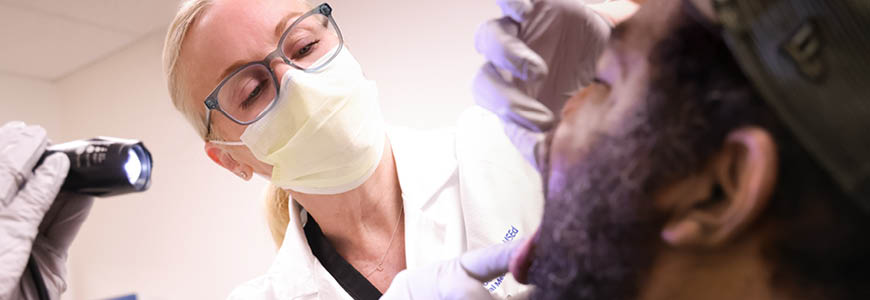Duke offers many advantages in the care of patients with head and neck cancers, including a multidisciplinary approach that involves experts in every specialty, the opportunity for patients to participate in clinical trials, a commitment to make an initial appointment within 48 hours, and a survivorship program that emphasizes return to a high quality of life, according to Walter T. Lee, MD, MHS, co-director of the Duke Cancer Institute’s Head and Neck Program.
“We have world-renowned faculty in all specialties, including surgeons, radiation oncologists, medical oncologists, speech pathologists, oral medicine specialists, advanced practice providers, and neuro-radiologists,” Lee says. “We are at the forefront of surgical techniques and radiation techniques to preserve quality of life.”
“Our program is the only one in North Carolina and one of the few in the country that includes oral medicine specialists. Oral medicine is not dentistry and not oral surgery, but focuses on medical treatments for oral-related conditions and diseases,” Lee says.
Duke also stays on the forefront of treatment by offering patients the opportunity to enroll in clinical trials in order to benefit from emerging advances such as immunotherapy before they have obtained full FDA approval.
Another advantage that sets the program apart is a commitment to offering an initial appointment within 48 hours. “If you have cancer, you want to be seen as soon as possible. Quicker access means a quicker road to treatment, which means better outcomes,” Lee says. But the fast access is also important for patients referred for evaluation who receive the good news that they do not actually have cancer. “We strive to treat our patients the way we would want ourselves or our family members to be treated.”
This emphasis on the patient’s mental well-being and quality of life is evident throughout the program. “Quality of life is particularly important in our field because the head and neck area contains so many things that define what it means to be a human being—speaking, swallowing, tasting, and breathing. We collaborate with the Duke Cancer Institute on a survivorship program that focuses on those things. You could be cured of your cancer, but still have issues with swallowing or speaking, so having a program that helps to address that is important,” Lee says.
A key part of survivorship includes working with the patient’s referring physician. “Patients come here for their surgery, but they may live hours away,” Lee says. “I’ll send them back to their referring physician for routine follow-up, but let the physician know, ‘I am here if you need me.’ We not only work well as a team here, but we also work well with referring providers to optimize treatment and follow-up.”
For patient convenience, the program’s two locations—Duke University Medical Center and Duke Raleigh Hospital—offer the same quality and treatment opportunities.
